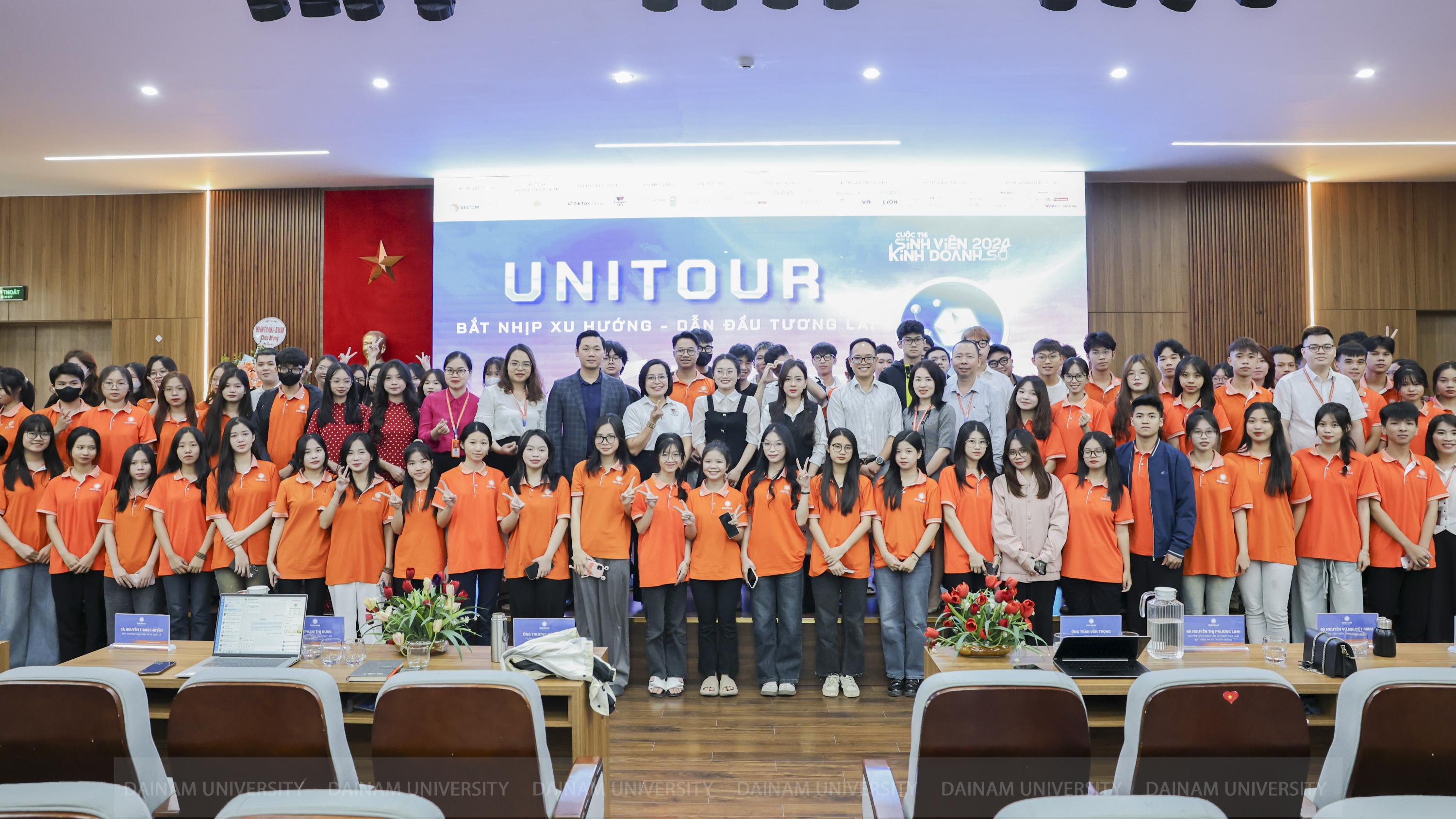Content and methods of studying accounting principles well for economics students at Dai Nam University
Posted date 04/03/2016
4.838 view

MSc. Tran Thi Hong Hue - Lecturer of Faculty of Accounting
As we know, for students of economics in general and students majoring in accounting and auditing in particular, the subject of accounting principles is considered as the foundation when going deeper into the major and is compulsory in the training program. Therefore, if you lose basic knowledge from this subject, you will encounter many difficulties when studying the next subjects of the Accounting-Auditing major. To study this subject well, students need to do well the following contents:
Firstly, students must have a firm grasp of the concepts, functions, objects, and principles of accounting: Accounting, accounting, distinguishing accounting from other types of accounting, understanding the functions and tasks of accounting, what are the objects of accounting research? the relationship between assets and capital sources, and the content of general accounting principles.
Second, students must understand the meaning of accounting documents, the content of basic elements in an accounting document, the order of processing and circulating accounting documents, and legal regulations related to accounting documents.
Third, students must grasp the content of pricing methods, the requirements of the pricing process, pricing principles and pricing procedures, thereby knowing how to apply pricing principles and procedures to specific objects and combine pricing for many objects.
Fourth, students must grasp the content and general structure of accounting accounts, accounting account classification methods, and account correspondence relationships. Grasp the process of checking the recording and reflection of transactions on general accounts and detailed accounts.
Fifth, students must understand the content and structure of the Balance Sheet, Income Statement, data bases and methods for preparing these reports. Know how to apply the database to prepare a specific report (in a simple form).
Sixth, students must grasp the content and main operations in each process: purchasing, production, sales. Apply accounting diagrams to practice specific economic operations.
Seventh, students must grasp the content of accounting organization in enterprises, accounting organization models, and accounting book forms.

To be able to acquire the basic knowledge of the subject, students need:
- Grasp accounting subjects, apply accounting principles to specific situations, know how to analyze economic transactions, on that basis perform accurate calculations and entries.
- Memorize the entire accounting system by doing a lot of exercises. Only then will you remember it for a long time and apply it quickly to the exercises. If you do not know this accounting system, doing the exercises will take a lot of time.
- Remember how to account for economic transactions that arise by students having to diligently do the accounting principles exercises that teachers give in class as well as find additional documents from other Universities and Academies. In addition, students can think of transactions themselves and account for them.
- Link knowledge between chapters, use known knowledge to acquire unknown knowledge, that way you will understand, remember, do more easily and consolidate old knowledge.
- Studying in groups is also an effective way to learn accounting principles well. We can gather a small group to solve exercises together and help each other answer questions that we do not understand in the lesson. If we encounter more difficult problems, we can ask the lecturer directly during the class of that subject or via email, phone (at the appropriate time).
- This subject does not require you to be creative or intelligent to learn, just that the learner needs to be diligent, hard-working, careful, and meticulous in learning to be able to achieve high results in learning.
- Must always update new knowledge.
- Grasp accounting subjects, apply accounting principles to specific situations, know how to analyze economic transactions, on that basis perform accurate calculations and entries.
- Memorize the entire accounting system by doing a lot of exercises. Only then will you remember it for a long time and apply it quickly to the exercises. If you do not know this accounting system, doing the exercises will take a lot of time.
- Remember how to account for economic transactions that arise by students having to diligently do the accounting principles exercises that teachers give in class as well as find additional documents from other Universities and Academies. In addition, students can think of transactions themselves and account for them.
- Link knowledge between chapters, use known knowledge to acquire unknown knowledge, that way you will understand, remember, do more easily and consolidate old knowledge.
- Studying in groups is also an effective way to learn accounting principles well. We can gather a small group to solve exercises together and help each other answer questions that we do not understand in the lesson. If we encounter more difficult problems, we can ask the lecturer directly during the class of that subject or via email, phone (at the appropriate time).
- This subject does not require you to be creative or intelligent to learn, just that the learner needs to be diligent, hard-working, careful, and meticulous in learning to be able to achieve high results in learning.
- Must always update new knowledge.

The Faculty of Accounting always has innovations in teaching methods of accounting and auditing to students.
Above are the contents and methods that students need to learn to study well and love this subject. At that time, the subject of Accounting Principles will no longer be a nightmare for students majoring in economics because this subject has a relatively high rate of students having to retake and retake exams compared to other subjects.
For any subject, the learning process is divided into 4 levels from shallow to deep as follows:
- Learn to know
- Learn to understand
- Learn to apply
- Learn to be creative
While still in school, let's strive to learn to understand and apply a part of it into reality. When knowledge has "permeated smoothly into your blood", discovering new ideas to create and develop existing knowledge will be a new peak for passionate students to reach.
Good luck!
Above are the contents and methods that students need to learn to study well and love this subject. At that time, the subject of Accounting Principles will no longer be a nightmare for students majoring in economics because this subject has a relatively high rate of students having to retake and retake exams compared to other subjects.
For any subject, the learning process is divided into 4 levels from shallow to deep as follows:
- Learn to know
- Learn to understand
- Learn to apply
- Learn to be creative
While still in school, let's strive to learn to understand and apply a part of it into reality. When knowledge has "permeated smoothly into your blood", discovering new ideas to create and develop existing knowledge will be a new peak for passionate students to reach.
Good luck!
Latest article
View all Posts
Related articles
See all related Articles
Register for admission consultation 2025
Dai Nam University offers admissions to
36 academic programs
across a diverse range of disciplines, including Healthcare, Engineering and Technology, Economics and Business, and Social Sciences and Humanities.
Register now to secure
scholarships and tuition support worth up to 55 billion VND
scholarships and tuition support worth up to 55 billion VND

Register now to secure
scholarships and tuition support worth up to 55 billion VND
scholarships and tuition support worth up to 55 billion VND









